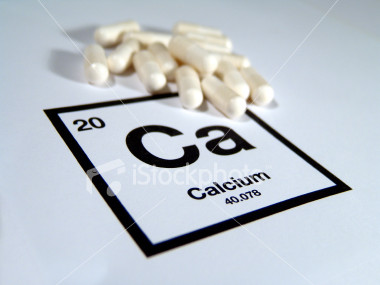
Calcium supplements can double heart attack risk and should be taken “with caution,” only for medical reasons, European researchers warn. A new study of 24,000 people adds to mounting evidence linking calcium supplements—taken with or without vitamin D—to greater danger of heart attacks, strokes, and other cardiovascular events.
Not only is the safety of calcium supplements coming under increased scientific scrutiny, but the new study is the first to define the exact daily dose that’s the danger zone for higher heart attack risk. The findings are important—and concerning—for the millions of Americans, particularly postmenopausal women, who routinely pop calcium supplements to prevent or treat brittle bones (osteoporosis).
To learn more about what the scary findings mean, as well as the best ways to protect your heart and bone health, I talked to Bradley Bale, MD, medical director of the Heart Health Program for the Grace Clinic in Lubbock, Texas, a leading specialist in heart attack prevention.
5 Heart Attack Signs All Women Should Look For
Should You Stop Taking Calcium Supplements?
The research doesn’t prove that supplements actually cause heart attacks, just that there’s a link to significantly higher risk, says Dr. Bale, who advised his patients to stop taking calcium pills last year.
His recommendation was prompted by a 2011 analysis of earlier studies, including the Women’s Health Initiative (WHI) involving about 30,000 women, which found an association between using calcium supplements and raised risk for heart attacks, strokes and other cardiovascular events, with relatively little bone health benefit.
“In that analysis, for every 1,000 women who took calcium supplements—with or without vitamin D—there were six additional heart attacks or strokes, while only three bone fractures were prevented,” says Dr. Bale. “We tell our patients to get their calcium through a healthy diet, rather than a supplement.”
Surprising Causes of Erectile Dysfunction
How Much Do Supplements Raise Risk?
In the new study, participants who were 35 to 64 when they joined the study between 1994 and 1998 were quizzed about their usual diet during the prior 12 months and whether they regularly took vitamin or mineral supplements. They were then tracked for 11 years, during which 354 heart attacks, 260 strokes, and 267 related deaths occurred.
When the researchers analyzed vitamin/mineral supplement use, they found:
- Participants who took supplements that included calcium were 86 percent more likely to have a heart attack, compared to people who didn’t take any supplements.
- Participants who only took calcium pills were more than twice as likely to have a heart attack.
Learn More about Heart Attack Warning Signs
The Calcium Danger Zone
After taking other factors that could influence risk into account, the researchers found that heart attack risk was highest in people who consumed more than 1,100 mg of calcium daily.
In the earlier WHI study, a seven-year randomized clinical trial, postmenopausal women were randomly assigned to either take 1 g of calcium and 400 iu of vitamin D daily, or a placebo. The hope was to show that supplements lowered heart attack and stroke risk, as was widely believed in the past.
Instead, calcium, with or without vitamin D raised heart attack risk by 24 percent.
The Optimal Daily Dietary Dose of Calcium
The study also found that people who consume a moderate amount of calcium in their diet—820 mg daily—had a 31 percent lower risk of heart attacks than those who consumed the least calcium.
Confused? “What this study is telling patients is that too little or too much calcium are both bad for your heart,” says Dr. Bale. “By suggesting getting 820 mg through healthy food choices seems to be the sweet spot for heart attack prevention, the study adds to medical knowledge by identifying what may be the best daily dietary ‘dose’ of this mineral, which is also crucial for bone health.
10 Tips for Increasing Bone Strength
Keeping Your Heart and Bones Healthy
Calcium is a major building block of bones, with our skeleton storing 99 percent of the body’s calcium. Among the best sources are dairy products, canned fish with edible bones (such as sardines or salmon), green vegetables like broccoli, kale, and bok choy, nuts (especially almonds and Brazil nuts), and certain fruits, including oranges, apricots and dried figs, the International Osteoporosis Foundation reports.
Here are more ways to protect your bone and heart health:
- Avoid smoking and secondhand smoke, advises Dr. Bale. Both are major risk factors for heart attack, stroke and osteoporosis.
- Be sure to get enough vitamin D: deficiency also boosts the threat of both conditions. The IOF advises 800 to 1,000 iu of D daily for middle-aged or older people, about double the daily intake recommended in most countries.
- Don’t be a lazybones. Regular weight-bearing exercise, including walking, jogging, dancing, and skipping, reduce risk for fractures later in life. A scary fact: Older women who sit 9 or more hours a day have a 50 percent higher risk for hip fracture than those who sit fewer than six hours a day.
- Limit TV time: A 2011 study found that people who devoted four or more hours a daily to screen-based leisure time entertainment—mainly watching TV—had double the risk of a major cardiac event resulting in hospitalization, death or both, compared to people who spent less than 2 hours glued to the tube.
Reid 團隊在這篇研究報告所分析的臨床,都是單獨吞服鈣補充品,而沒有吞服維他命D。但是卻有另外一篇臨床文章發表在 2007 年 Circulation 期刊說,將 36282 位停經後婦女平均分成兩組,一組每天早晚都吞服 500 毫克碳酸鈣加 200 IU 維他命 D,另外一半人吞服安慰劑,7 年之後,兩組之間心肌梗塞和中風的罹病率沒有顯著差別。
英國的 John Cleland 醫師在同一期 BMJ 期刊上,針對 Reid 的文章發表一篇編輯評論。他說,這個報告讓他非常關心補充鈣質的安全性,但他並不認為這篇文章的分析結論已經讓人可以信服。他又說,既然補充鈣質對減少骨折並沒有幫助,我們可以認為補充鈣質是沒有多大的意義。另外,他也認為,應該有近一步的研究,來探討同時補充鈣質和維他命 D 是否安全而且有效。
心臟專科醫師 Mieca Goldberg 說,很難了解為什麼補充鈣會增加心肌梗塞的機會,但卻又對中風和死亡的影響較少。他又認為,或許只有飲食確實缺乏鈣質的人,才應該攝取鈣補充品。
營養補充品專家 Jon Barron 在他的網站評論說:
在 1950 年之前,一般人每天鈣攝取量平均不到 200 毫克,但是在 1950 年之後由於美國乳業團體的遊說,一般人的每日攝取量已經被推薦為 1000 毫克,而事實上要有健康的骨骼,攝取足夠的鎂、硼、維他命 K 和維他命 D 的營養素,可能比攝取多餘的鈣還重要。
奶類和動物蛋白攝取過多可能也是骨質流失的重要原因。北歐和美國人的骨折和骨質疏鬆的發生率最高,而其牛奶攝取量是南非和新幾內亞人的 50 倍。
鈣化大多是身體器官內沈積磷酸鈣:它可以強化骨頭和牙齒,但是也可以沈積在血管心臟瓣膜、腎臟、腦、皮膚、關節、乳房等不該鈣化的地方,尤其是心血管和心臟瓣膜的鈣化會帶來危險的後果。
體內鈣和鎂的濃度必須互相平衡。目前美國醫學界所推薦的每日攝取量,鈣對鎂的比例是 2 比 1。但是他認為,應該是 1 比 2 比較適合,也就是說大部分的人並不缺鈣,反而可能缺鎂。
維他命 D 可以幫助身體吸收鈣,而兒童和老人普遍缺乏維他命 D。另外,維他命 K 會幫助鈣質沈積在骨骼和牙齒。





 留言列表
留言列表
 線上藥物查詢
線上藥物查詢 